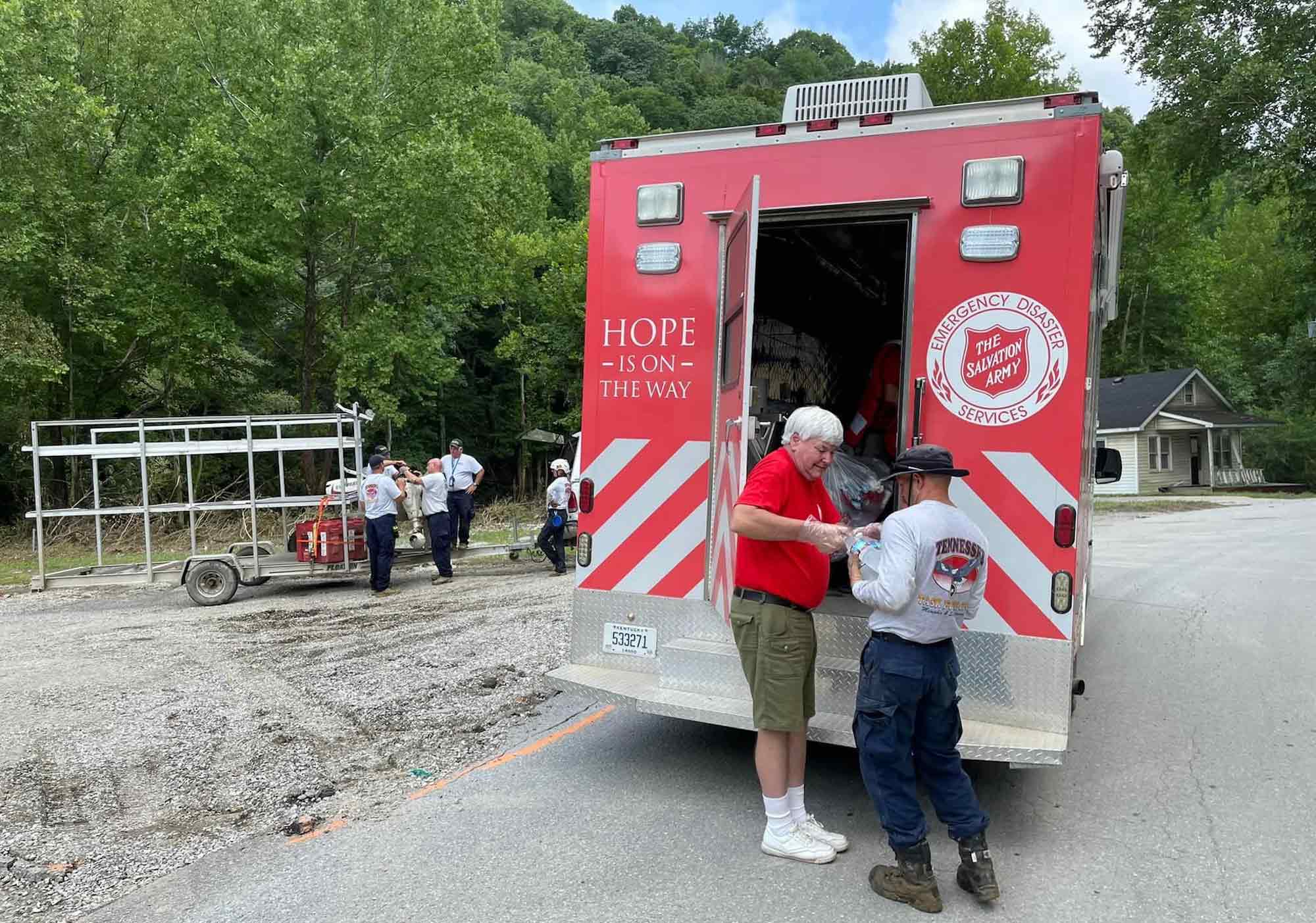An excerpt from “Analog Christian: Cultivating Contentment, Resilience, and Wisdom in the Digital Age.”
Recently our church was holding an outdoor event for families and kids. Dozens of young parents and little children were congregating on our campus, eating, playing, and connecting. As Jenny and I were walking our own two littles to one of the designated play areas, one of our kids-ministry staff asked if I’d address a situation unfolding in the courtyard. I rushed over and saw an older homeless man interacting with one of our families. The man seemed out of sorts and wasn’t speaking, just shaking his head and pointing this way and that. I relieved the family and asked the homeless man for his name. He mumbled, “Charles,” then said nothing else. We walked together to my office.
Truth be told, I was not much concerned for Charles and his needs. Unsure of his mental state and potential for causing harm, I mostly wanted to get him away from our families. Charles continued pointing around in silence and my frustration grew. Annoyance began turning for the worst, toward hostility. Why was he here? What did he want? Why wasn’t he speaking? Eventually, I gave him a pen and paper and he began to write with a shaky hand.
My name is Charles. I am homeless. My jaw is broken, and I have an infection in my mouth. I’m sorry I can’t speak. I need a place to stay for the night. Can you help?
Embarrassed by my narrow perspective on the situation, I gave Charles what help I could and prayed for him. I prayed for myself too. Generally, I think of myself as a kind and good man. But in that moment, I realized just how inconsistent and circumstantial my kindness and goodness are. I’m far more kind and good on warm weekend afternoons over food and drink with friends in the backyard. I’m far less kind and good when I don’t get my way, in traffic during rush hour, or when a homeless man makes his way to one of our events. But this inconsistency doesn’t sync with Paul’s understanding of the Spirit’s fruit. There was, of course, a sort of kindness and goodness in my desire to keep our families and kids safe. But it didn’t need to create an enemy out of Charles. Rather than assuming the potential harm he posed, I could have—and should have—asked first, “How can I help?”
If Christians live with the indwelling of God’s Spirit at all times, and Paul includes kindness and goodness as two of the characteristics of the Spirit’s fruit, this means that the outworking of the constant, unchanging Spirit of God within results in lives of invariable kindness and goodness toward all. But in our actual lives, if our kindness and goodness are relative to the who/what/when/ where variables, what does it mean that they are attributive to the constancy of the Spirit’s work within? Such variability and constancy cannot coexist. Clearly, the sort of kindness and goodness born of the Spirit’s regenerative work in us is not the earthly sort. They’re not dependent upon circumstances nor are they reciprocal feelings of fondness or selective acts of goodwill. These aren’t quid pro quo versions of kindness and goodness.
The primary way to keep us clicking, swiping, and scrolling in the digital age is by fueling our hostility toward one another. Self-centric despair, comparison, contempt, and impatience often make unnecessary enemies of us all, at needless odds with each other. The social media economy is in many ways propped up and held together by this manufactured antagonism. Frances Haugen, the Facebook insider-turned-whistleblower, states that its “engagement-based formula helps sensational content, such as posts that feature rage, hate or misinformation, travel far and wide.” It isn’t just Facebook; the algorithms that run social media on the whole reward this sort of hostility. I believe kindness and goodness born of the Spirit’s work within are the best antidotes.
In his letter to the Ephesians, writing of the union Jews and Gentiles now have in Christ, Paul says this: “His purpose was to create in himself one new humanity out of the two, thus making peace, and in one body to reconcile both of them to God through the cross, by which he put to death their hostility” (Eph. 2:15-16).
It’s difficult to overstate the significance of the social and religious divide between Jews and Gentiles in the first-century world. There existed genuine division, disgust, and blame between them. But as Paul writes, Christ’s death and resurrection “put to death their hostility.” And his death and resurrection have the same powerful effect today. In Christ, there has been born one new humanity, at peace and reconciled. For those who belong to this new family of God, kindness and goodness are not optional.
During Covid-19, as tensions rose on multiple fronts, I had many conversations with several pastor friends who shared with me confidentially that they’d never thought more about leaving pastoral ministry. Not a single one of them was dealing with issues of immorality, family or health concerns, or financial struggle—none of the usual stuff I’d heard over the years as reasons for leaving ministry. Instead, each of these friends shared specific emails and direct messages on social media they’d received and were continuing to receive from people in their church during the pandemic.
“You’re a coward.”
“I can’t believe I respected you once.”
“Stop putting your tail between your legs.”
“You should be ashamed.”
“We’re leaving.”
These emails and messages were coming from all sides, those who were upset their church wasn’t gathering and those who were upset their church was gathering. One friend of mine posted a photo of an outdoor service at his church, held well within all of his county’s health restrictions—socially distanced, masks on, etc. He read to me part of a direct message he received from one of his former congregants in response to the photo. It read, “Pastor, you have blood on your hands.”
What were these church leaders to do with such digital vitriol? There was no room for nuanced conversation, no extending of grace or understanding, no sense of honoring years of friendship and ministry together. Just hostility—from all sides.
As I sat with these friends who’d poured themselves into shepherding and guiding their church communities for many years, their pain and distress were both heartbreaking and familiar. I don’t share this to paint pastors as martyrs. The pandemic was painful and distressing for all of us, not just church leaders. I share these stories because they give us a glimpse into the loss of kindness and goodness even within Christian communities today.
None of the pastors I talked to were taken aback by criticism or critique in general; those are expected when serving and leading. What wrecked them, and me, was the seemingly ardent commitment to division, the absolute disgust toward others, and the incessant need to blame. I’m sure you can relate, whether you’re a pastor, a teacher, a stay-at-home parent, a college student, a blue-collar or a white-collar worker. In some ways, kindness and goodness seem too nice to stand a chance against such a significant surge of hostility. But this may be because we don’t have a deep understanding of what biblical kindness and goodness are.
Taken from “Analog Christian: Cultivating Contentment, Resilience, and Wisdom in the Digital Age” by Jay Y. Kim Copyright (c) 2022 by Jay Y. Kim. Published by InterVarsity Press, Downers Grove, IL. www.ivpress.com
Do Good:
- Read “Analog Christian: Cultivating Contentment, Resilience, and Wisdom in the Digital Age” (IV Press, 2022) by Jay Y. Kim.
- Get on the list for Good Words from the Good Word and get a boost of inspiration in 1 minute a day with a daily affirmation from Scripture list this sent straight to your inbox. It’s an email to help you start your day with goodness.
- You’ve probably seen the red kettles and thrift stores, and while we’re rightfully well known for both…The Salvation Army is so much more than red kettles and thrift stores. So who are we? What do we do? Where? Right this way for Salvation Army 101.













